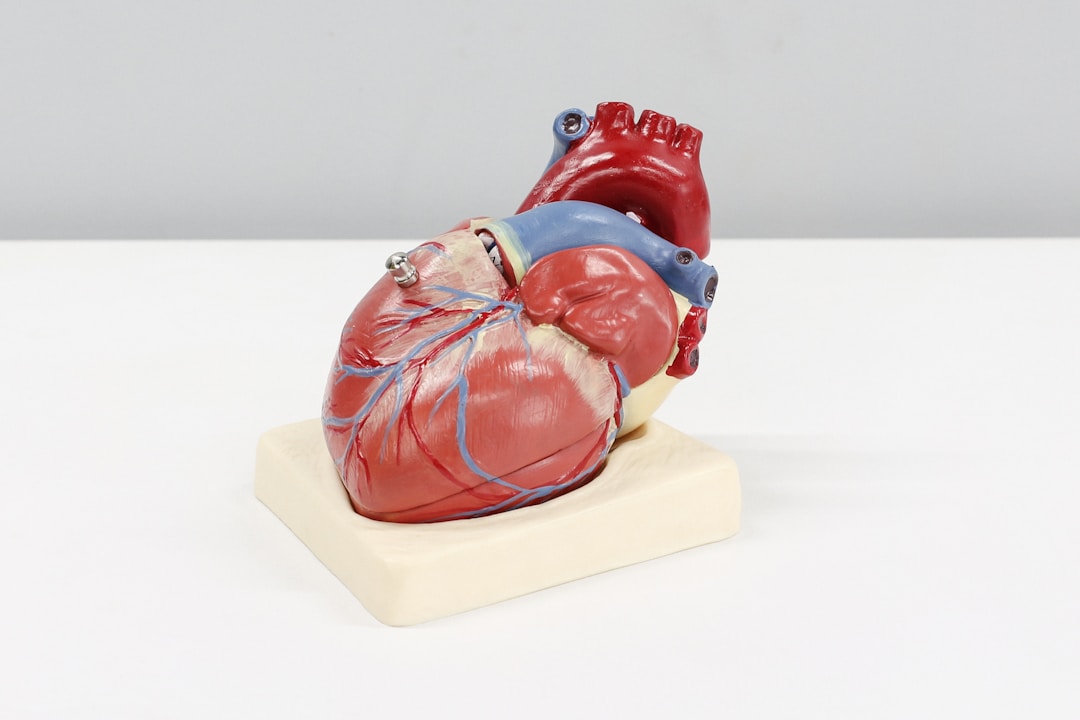There is no doubt that they are an integral part of our body. The pumps blood throughout your body, delivering oxygen and nutrients to your tissues. If we take care of our hearts, we can reduce our risk of heart disease and other heart-related conditions. Heart disease is the leading cause of death in the United States, so you need to do everything you can to protect your heart. In this article, we’ll be discussing strategies to keep your heart happy and healthy. If you’re in need of advice, then you should keep reading to discover more.
Heart Disease: Signs and Symptoms

There are numerous symptoms associated with heart disease, and it pays to be mindful of them. These can range from chest pain, tightness, and discomfort (angina) to shortness of breath and palpitations. Particularly, these symptoms may become more pronounced during physical activity or moments of stress. Further symptoms may include fatigue or weakness, faster than normal heart rate, swelling in your ankles, feet, legs (edema) or stomach (ascites), or even fainting and dizziness. It’s important to keep an eye out for these signs and seek prompt medical assistance if you experience any of them.
The understanding of these signs and symptoms can ultimately aid in early diagnosis and treatment. Working with a cardiologist in Los Angeles can manage these symptoms and improve your heart health. By seeking their expertise, you can receive a thorough evaluation and accurate diagnosis of your symptoms. They have access to a wide range of diagnostic tools and tests that can identify the underlying cause of your symptoms, such as electrocardiograms (EKG/ECG), stress tests, echocardiograms, and cardiac catheterization. These tests can provide valuable insights into the health of your heart and determine the most appropriate treatment plan for you.
Understanding the Importance of Heart Health
Keeping your heart healthy is critical for maintaining your health. A healthy heart enables efficient blood flow, supplying various parts of your body with much-needed oxygen and nutrients. Furthermore, heart-related illnesses are among the leading causes of death globally. Thus, understanding how to keep your heart healthy can potentially prolong your life and improve its quality. Your heart is also vital for physical performance.
For active individuals and athletes, a healthy heart can enable you to perform at your optimum capacity. It can enhance your stamina and endurance, thereby improving your physical abilities. A fit and healthy heart also means you’ll bounce back faster from physical exertions, decreasing your recovery time. Emotionally, your heart health can impact your mood and mental state. Poor heart health can lead to feelings of fatigue and a constant state of not feeling well, which can lead to depression and anxiety. Thus, keeping your heart in good shape is not only a physical necessity but also a psychological one.
Effective Ways to Enhance Heart Health

Several factors contribute to maintaining a healthy heart. Regular exercise is one factor. Physical activities such as running, walking, or any activity that increases your heart rate can strengthen your heart and cardiovascular system. Moreover, it reduces the risks of heart diseases, including stroke and heart attack. A healthy diet is another factor in heart health. Consuming a diet rich in fruits, vegetables, lean meats, and whole grains can lower the risk of heart disease. Limit your intake of processed foods and foods high in saturated fats and sugars.
Hydration is also crucial; ensure you drink enough water each day to keep your body functioning efficiently. Regular check-ups with your healthcare provider are essential. They can monitor your cardiovascular health and detect any potential issues early. A point to note is that some signs of potential heart problems such as high blood pressure and high cholesterol are not visible physical symptoms. Therefore, consistent medical check-ups are necessary for early detection.
Impact of Lifestyle Factors on Heart Health
Aside from diet and exercise, several lifestyle factors can affect your heart health. Cigarette smoking is a risk factor for developing heart disease. The chemicals found in tobacco can damage your heart and blood vessels, leading to the narrowing of the arteries (atherosclerosis) which can result in a heart attack. Excessive alcohol consumption can also impact your heart health negatively. It can lead to high blood pressure, heart failure, or even stroke.
Besides, excessive drinking can contribute to obesity, a risk factor for heart disease. Accordingly, it’s vital to limit alcohol consumption. Stress plays a part in heart health too. Chronic stress exposes your body to consistently high levels of stress hormones like adrenaline and cortisol, which can increase your heart rate and blood pressure, eventually leading to heart damage. Developing stress management skills can reduce heart disease risk.
Preventing Heart Disease

Prevention is always better than cure. While it’s true that certain factors influence heart disease risk like age and family history are out of your control, many lifestyle habits can prevent heart disease. These comprise eating a heart-healthy diet, maintaining a healthy weight, getting regular physical activity, and controlling other health conditions like high blood pressure, high cholesterol, and diabetes.
Again, it’s highly advisable to quit smoking and limit alcohol consumption for enhanced preventive measures. Also, ensure that you manage stress effectively. This could mean engaging in mindfulness or relaxation activities such as yoga or meditation, or seeking guidance from a mental health professional if needed. Stay proactive about your heart health and seek regular medical advice to monitor your heart condition. YOu have to take prescribed medications as directed and attend all follow-up visits so that your healthcare provider can monitor your progress.
Seeking Medical Help
If you’re experiencing symptoms related to heart disease or have been diagnosed with heart disease, find a reliable healthcare provider. They can guide you through the process of managing your condition and formulating a treatment plan tailored to your health needs. Don’t wait until you experience severe symptoms before seeking medical attention. If you have any concerns about your heart health, you should immediately bring them up with your healthcare provider.
Even mild symptoms can be an indication of a more serious condition that needs immediate attention. Remember that early detection can save lives. Regular check-ups, a healthy lifestyle, and listening to your body can improve your heart health and well-being.
The Power of Self-Care for Heart Health

Alongside regular check-ups and physical activity, taking care of your emotional health can also contribute to a healthy heart. This refers to self-care practices that manage stress and promote relaxation, like mindfulness and deep breathing techniques, spending time in nature, connecting with loved ones, and pursuing hobbies or activities you enjoy. Get enough sleep. Lack of quality sleep can impact both your health and heart health.
Poor sleep increases the risk of obesity, high blood pressure, heart attack, diabetes, and depression. Aim for seven to nine hours of quality sleep each night. A healthy heart is not an overnight achievement but a lifelong commitment. Adopting a heart-friendly lifestyle can go a long way in maintaining heart health and improving your overall well-being. Every step towards a healthier heart counts, no matter how small.
As you can see, maintaining a healthy heart requires a balanced combination of a good diet, regular physical activity, and managing stress levels. While challenges will arise, focusing on making healthy choices each day can contribute to keeping a happy and healthy heart. Keep aware of your body signs and report any irregularities promptly. Working with professionals such as a cardiologist can significantly lessen the worry about heart health. Always know that the journey to a healthy heart is a marathon, not a sprint. Each step you take is a step towards a longer, healthier life.

